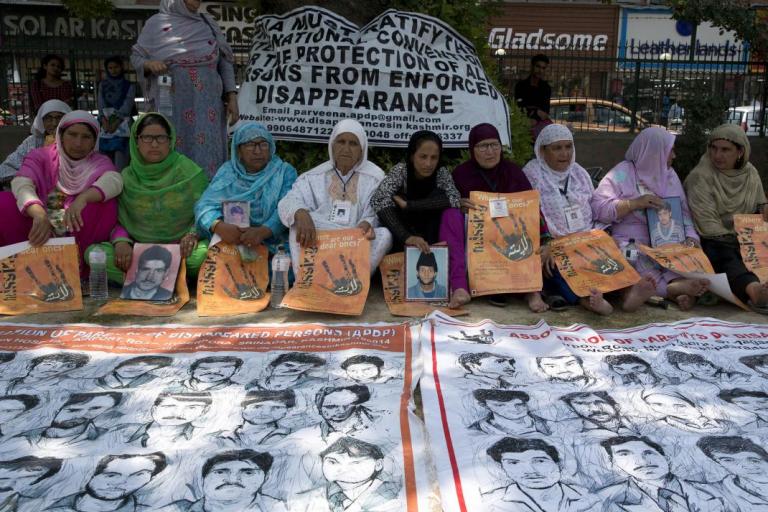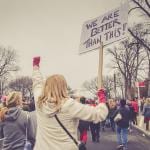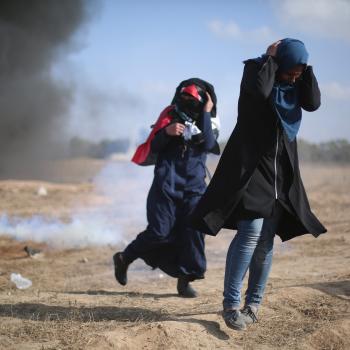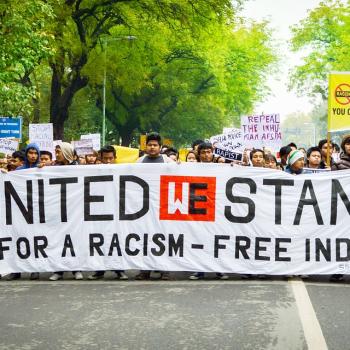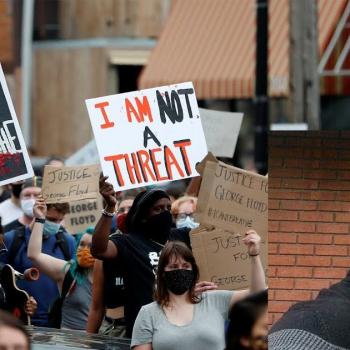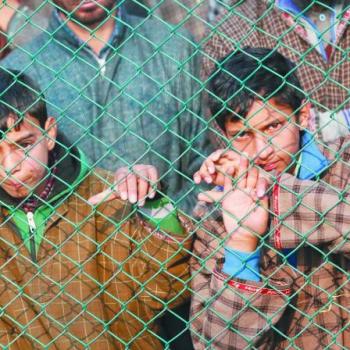As India celebrates its freedom from the British rule in 1947, Modi’s extreme right wing Hindu nationalist party fulfilled a campaign promise by annexing Kashmir and essentially depriving the Kashmiris from its right to freedom, by revoking article 370 of Indian constitution.
Article 370 and Article 35A of the Indian Constitution had promised Kashmir its own constitution and decision-making powers outside the areas of foreign affairs, communications and defense. They also barred Indians from outside the state from buying land in Kashmir. By this action, the Modi government has essentially annexed Kashmir in an effort to make Kashmir an integral part of India- a territory that is a source of conflict between the nuclear-armed Pakistan and India almost since their freedom from the British Empire in 1947. This is against the UN resolutions calling for the Kashmiris to choose to live between Pakistan, India or as a free nation.
By revoking the article, it also calls for the long-standing ban on Non-Kashmiris buying Kashmiri land.
In other words, the campaign for settlements has started. The Indian ruled Kashmir is under siege these days — there is no internet, cable TV or mobile phones, masking widespread reports of abuses against the Kashmiris. As Muslims around the world celebrated Eid al Adha earlier this week, overseas Kashmiris have not heard from their families.
According to Religion News Service (RNS) on August 14, 2019:
Media reports indicate that Indian forces kept the region largely locked down on Eid in an effort to avert protests. Many major mosques and shops in Srinigar remained closed on a day that is usually filled with jubilant festivities, while officers in riot gear stood at checkpoints along the streets. Tens of thousands of additional Indian troops have also been deployed into the small region.
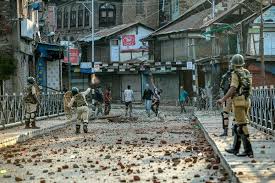
To protest the illegal annexation and widespread abuse of human rights, various organizations in the America have called for rallies, led by an organization called Stand With Kashmir- an organization of citizens advocating to fight for justice, ending the occupation, and the right for self-determination for the Kashmiris. One such rally is being planned on Saturday August 17 in san Francisco at the Ferry building.
Not surprisingly, the Hindu American Foundation applauded Modi’s decision to annex Kashmir. According to the RNS report, Samir Karlra, their managing director defended the Indian government’s decision:
“As a secular pluralistic democracy, it is vital that all citizens of India enjoy the same rights and are subject to the same laws, regardless of where in the country they reside,” Kalra said the abrogation of Articles 370 and 35A “will help better integrate” the region’s residents and pave the way for resettlement of the Pandit community, native Brahman Hindus of the Kashmir Valley who were forced to flee their homeland after an insurgency against Indian rule in the mid-’90s.
“Same rights”? “Secular pluralistic democracy”? Really?
And various human rights group would tell you otherwise.
India may have been a secular pluralistic society in the years past, but Modi’s Hindu nationalist agenda has been wiping that from Indian history at record pace. Since 2014 when he took over, India has seen increasing shift towards Hindu nationalism and extremist and increasing hateful rhetoric and violence towards religious minorities including Muslims, Christians, Sikhs and others.
There have been widespread reports of human rights abuses in Indian-held Kashmir for decades, including the one by Office of the UN High Commissioner for Human Rights (OHCHR), released on July 8, 2019. The report blames both Pakistan and India for abuses but focuses much more heavily on the abuses by the Indian government.
The 43-page report by the Office of the UN High Commissioner for Human Rights (OHCHR), released on July 8, 2019, raises serious concerns about abuses by state security forces and armed groups in both Indian and Pakistan-held parts of Kashmir.
The OHCHR found that Indian security forces often used excessive force to respond to violent protests that began in July 2016, including continued use of pellet-firing shotguns as a crowd-control weapon even though they have caused a large number of civilian deaths and injuries. The Indian government should review its crowd control techniques and rules of engagement, and publicly order the security forces to abide by the UN Basic Principles on the Use of Force and Firearms by Law Enforcement Officials.
The report also decried the lack of justice for past abuses such as killing and forced displacement of Hindu Kashmiri Pandits, enforced or involuntary disappearances, and alleged sexual violence by Indian security forces personnel. It expressed concern over excessive use of force during cordon and search operations, resulting in civilian deaths as well as new allegations of torture and deaths in custody.
The OHCHR noted that India’s Armed Forces (Jammu and Kashmir) Special Powers Act (AFSPA) “remains a key obstacle to accountability,” because it provides effective immunity for serious human rights violations. Since the law came into force in Kashmir in 1990, the Indian government has not granted permission to prosecute any security force personnel in civilian courts.
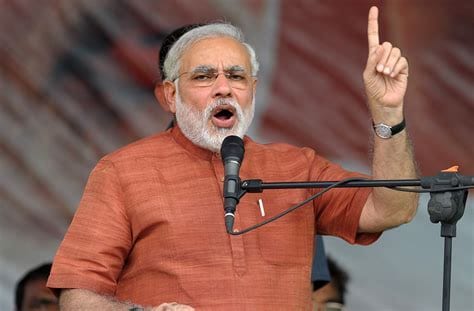
The human right abuses have been going on for decades. However, since the election of the right wing Hindu nationalist party, led by Modi, the anti-Muslim, anti Christian and anti-Non Hindu environment in India in general and towards Kashmir in particular has been taken to another level.
A 2010 US state department report stated that the Indian army in Jammu and Kashmir had carried out extrajudicial killings of civilians and suspected insurgents. In a 1993 report, Human Rights Watch stated that Indian security forces “assaulted civilians during search operations, tortured and summarily executed detainees in custody and murdered civilians in reprisal attacks”; according to the report, militants had also targeted civilians, but to a lesser extent than security forces.
A cycle of revenge, counter-revenge, attacks and counter-attacks have begun between the two nuclear powers, bringing them closer to war.
Here are some points to remember by Sound Vision- an organization that is part of a coalition working to raise awareness of the Kashmiri issue.
- Kashmiris Killed by the Indian army: 94,479
- Custodial killings by Indian army: 7,048
- Disappearances of Kashmiris at the hands of Indian police: 10,125
- Gang rapes by Indians in Kashmir: 10,283
- Kashmiris blinded by Indian firing: 188
- Kashmiri children orphaned: 20,085
- Kashmiri women widowed: 20,005
- Kashmiri buildings destroyed: 106,071
- Kashmiris must be part of all talks, not just Indians and Pakistanis
- 70 years of Indian subjugation of Kashmiris has proven that no amount of force can quell their freedom movement
- Kashmir, according to the Indian scholar Arundhati Roy, was never a part of India
- The world must differentiate between terrorism and legitimate freedom movements by oppressed peoples
- The rise of Hindu fascism called Hindutva is fueling the fire. As a February 2019 report by Human Rights Watch noted, “In 2018, the government led by the Bharatiya Janata Party (BJP) harassed and at times prosecuted activists, lawyers, human rights defenders, and journalists for criticizing authorities.”
- Muslims, Christians, Dalits, and Sikhs, all Indian minorities, are facing serious challenges in India at the hands of the Hindutva government, which many translate consider a form of Hindu fascism that attacks minorities with armed militias.
The Kashmiris don’t want this conflict to be seen as an India-Pakistan issue. They don’t want themselves to be treated as pawns between India and Pakistan. They want the world to see this as a Kashmiri issue- a human rights issue- the right for self-determination, freedom and justice.
With so much going on in America, and around the world, I understand it is hard to stand up for all issues of injustices-be it the Rohingyas, the Uyghurs, the Palestinians, Kurds, Yazidis, gun violence, anti-Semitism and Islamophobia and other forms of racism and bigotry. But someone has to stand up for the Kashmiris. They cannot remain the forgotten, voiceless community fighting for human rights and their right for self-determination, which now is in serious jeopardy after the Modi government’s decision to revoke the article in Indian constitution that called for the Kashmir to be a semi-autonomous state- that’s a move in the opposite direction to what Kashmiris want and what the UN resolution had called for.
Like Trump in America, Modi has made it more difficult for peacemakers to do their work. Revoking article 370 is a serious move to stir up the emotions that were raw to start with in this conflicted zone. The 70-year plus history between nuclear-armed Pakistan and India has shown that the military/violent conflicts will not solve the Kashmir issue. Only a non-violent, level-headed approach to this complex issue has any chance of a peaceful solution. This starts with asking the Kashmiris as to what they want for themselves- so said the UN resolutions, which granted their right for self-determination.
When remembering and speaking up against oppression, occupation and injustice, let’s not forget the Kashmiris.

